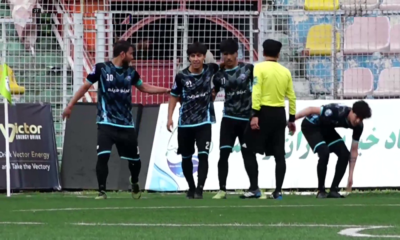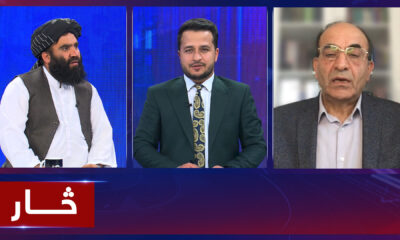Latest News
Former UNAMA chief gives frank opinion on current crisis
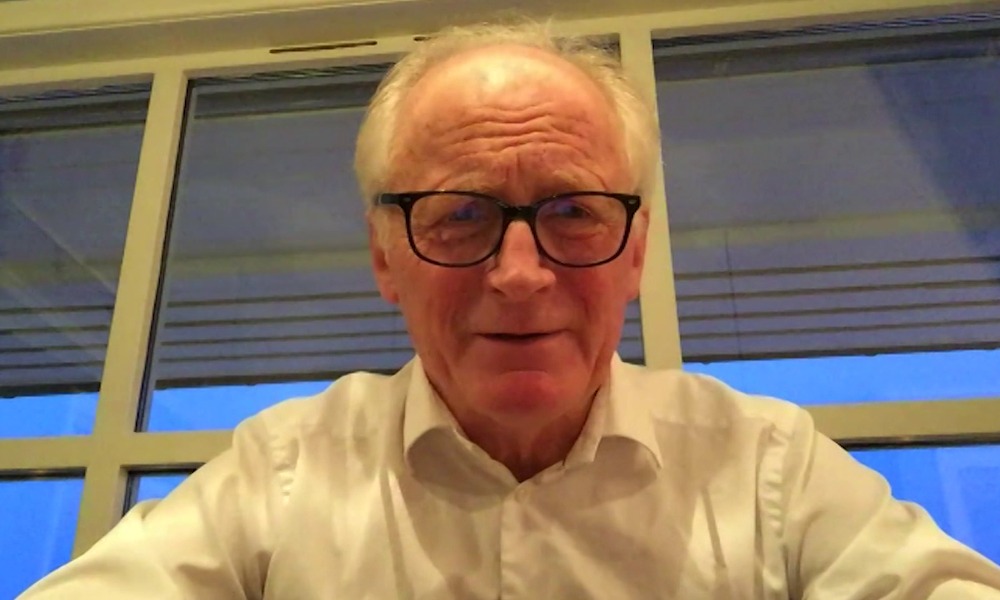
Kai Eide, former head of UNAMA has pointed a finger at Afghanistan’s leaders and said there is little unity among them and that hostile statements made could undermine the peace process.
Referring specifically to the first vice president, Eide said: “I see Amrullah Saleh, the vice president, constantly (making) what I would call rather poisonous statements.
“Yes we need a reduction in the level of violence, but we also need a reduction in the level of polemics that are being thrown out there,” he said adding that this affects “the atmosphere in a bad way”.
In an exclusive interview with Ariana News, Eide said he was shocked at the lack of preparation for peace talks on the part of the Afghan government.
He said discussions had been held for months, ahead of the launch of negotiations in Doha, but that government had been wholly underprepared for the talks.
One example he cited was that members of the High Council for National Reconciliation were only appointed in the lead up to the start of the peace talks. He said the lack of preparedness was “shocking” to him.
He also blasted government and said there was no unity among its leaders and that consensus is needed among Afghan politicians adding that
He said the insufficient preparations for peace talks was “shocking” to him even though officials have had a long time to get the structure right.
He questioned the reason for this and asked if this was “foot dragging or what is the behind this. Certainly there is controversy among the government leaders.”
He also questioned why a technical team for the peace talks had only recently been established and pointed out that modalities and procedures are difficult topics to discuss and decide on and said these can not be discussed just days before negotiations resume.
Clearly frustrated over the speed at which things have been done he said: “Get a structure in place!.”
Regarding the second round of talks, he said he is “worried” that the republic’s team is not ready but also stated that he is not sure if the Taliban team really knows what they want from this round of negotiations.
He said to date the Taliban has really only focused on discussions of a military nature opposed to talks which are centered on civilian and political-related topics.
Asked about the Taliban and who they are, Eide said he thinks they have changed but whether they have changed enough, only time will tell.
However, he said he did not think they can rule Afghanistan again? “No I don’t think so”. Do they want a different relationship with the international community? “Yes I think so,” he said.
“Do they know how to get there? I am very unsure.”
“Their experience is from negotiating military matters now over the last two years and their experience negotiating civilian issues, political issues is very minimal.”
He said he often asks himself whether the Taliban knows themselves where they are heading and what their red lines are.
“Sometimes I hear very combative statements from them regarding issues of key importance.”
On incoming US president Joe-Biden he said he does not think the incoming president will reverse outgoing President Donald Trump’s decision to withdraw troops
But he said he had expected spoilers to come out after the US and Taliban signed their agreement in February last year.
However, what was of serious concern to him was the high levels of violence.
Blunt and to the point he implied that circles within Kabul who do not want the peace talks to progress could be using the high levels of violence as an excuse “to say look the Taliban again. They don’t want to admit. They hiding their face. They really don’t want peace.”
“But I am also worried about the level of violence,” he said implying that if the Taliban, as they claim, are not behind the targeted killings, they “could have reassured the government and the international community” that they would reduce violence “and do it in a way that is visible.
He said violence “is highly counterproductive” and “I wish that would stop immediately”
He also said a ceasefire, although necessary, is “unrealistic at this stage” but what is realistic is that there needs to be a significant reduction of violence – as seen in other conflicts in the past.
Eide stated there is a lack of unity within the Kabul government – which is “frustrating”, especially in light of two “so-called presidents” having taken oath last year which was bad for the Afghanistan democracy.
This was in reference to last year’s election standoff between Ghani and his then CEO Abdullah Abdullah, who is now the Chairman of the High Council for National Reconciliation (HCNR).
He said this was testimony to Afghan leaders not being united – specially after having two election candidates each declare themselves winners and hold their own inauguration ceremonies..
According to Eide, this fiasco not only caused a lot of time to be lost but it also sent out a disappointing message around the world – with the international community asking why could the country’s leaders not unite.
“What I am afraid of is that disagreement is still underlying and hampers the efficiency of the government.
“When you have claims all the time that the agreement is not respected etc; you see Dr Abdullah doing his thing, saying his thing; you see president Ghani saying sometimes other things, and vice president Saleh certainly on a more hostile note whenever he expresses his view.”
“If you want to succeed then you have to be united. And you have to demonstrate a united front,” he said.
Anything else makes you be seen as weak and you cannot afford to be weak in times like this, he said.
On US agreement with the Taliban, Eide said Trump’s plan “to end the endless wars” including the Afghan conflict was not well thought out and that the decision to withdraw troops was based on his election campaign promises to end wars the US is involved in.
“I think the question of withdrawal of American forces and international forces was only a matter of time. It would not have lasted much longer under the circumstances.
But he stressed that there was sometimes “no compromise” even though Afghanistan was a democracy.
Eide said it was not possible to have half a democracy and the system as it is needed to be accepted.
In line with this he said the discussions on what type of political system will be established will “be a great challenge” . He also pointed out that another question was around the rights and freedoms of the individual Afghan, including Afghan women and girls.
He said specifically with rights, for women and children and the media, it was critical that this was at 100 percent. He said one can’t go with 50 percent of rights – and that there was no compromise on this.
He said he did not see how a democratic system and peoples’ rights could be negotiated and that it was clear cut – you either “accept them or you don’t accept them”.
But going back to violence, he said it was critical to get the levels of violence down so as to create a calmer atmosphere so negotiators can sit and discuss issues without being distracted.
He also pointed out that the recent calls by officials and Ghani to hold the talks in Afghanistan was not necessary. He stated that it was normal for peace talks to be held in a third country.
He said by raising these types of issues only distracts from the “central issues that are confronting you at the moment.
On the comments by Saleh, the vice president’s office told Ariana News that the first VP has constantly emphasized the need for a reduction in violence and “Saleh has put all of his efforts for maintaining peace in the country.”
Latest News
Tripartite trade meeting held in Kabul to boost regional connectivity

A tripartite meeting between the delegations of Afghanistan, Turkmenistan and Kazakhstan was held in Kabul with the aim of connecting North Asia to South Asia and reducing transit and transportation costs among these three countries, the Ministry of Trade and Commerce said in a statement.
In this meeting, an agreement was reached on the creation of a joint technical committee to continue the talks.
This tripartite meeting was held under the leadership of Nooruddin Azizi, the Acting Minister of Industry and Commerce, Vice President of Turkmenistan and Srik Zhumangarin, the Deputy Prime Minister of Kazakhstan.
Earlier, a bilateral meeting was held between the delegation of the Islamic Emirate and Turkmenistan. The ministry of commerce said the participants of the meeting discussed the construction of a large joint logistics center in Torghondi, the trilateral transit agreement between the IEA, Turkmenistan, and Kazakhstan, the expansion of Afghanistan’s railway, solving issues related to Afghan transit and export goods, and a number of other commercial issues.
Latest News
No destructive groups including Daesh present in Afghanistan: Yaqub Mujahid
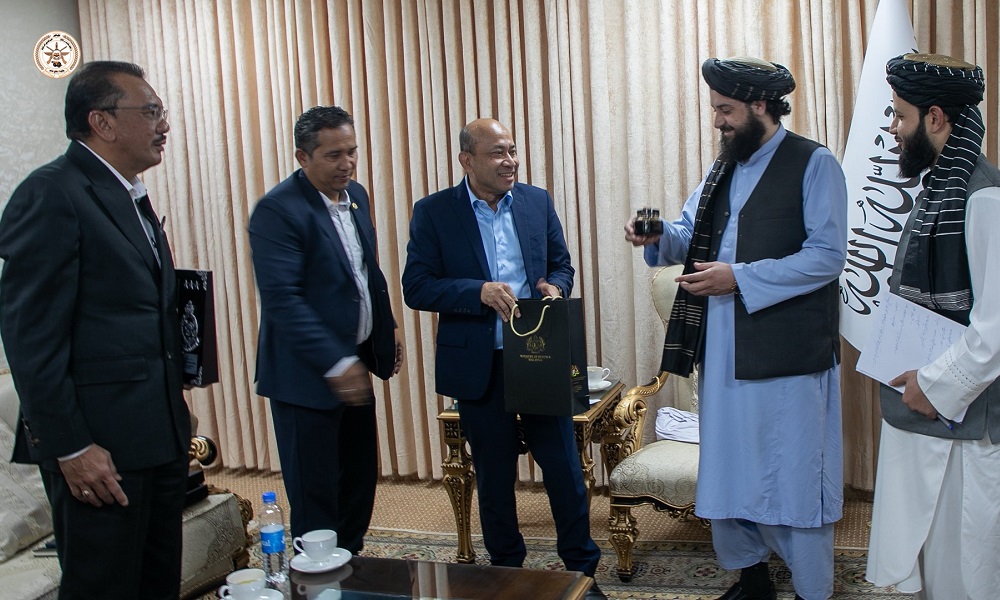
Acting Minister of National Defense Mohammad Yaqub Mujahid has said that no destructive groups including Daesh have physical presence in Afghanistan, adding the Islamic Emirate of Afghanistan (IEA) will not allow anyone to pose threat to any country in the region from the Afghan soil.
Mujahid made the remarks in a meeting with a delegation from Malaysia in Kabul on Thursday.
According to a statement released by the Ministry of Defense, Mujahid highlighted Malaysia’s “good treatment” of Afghan refugees and its long-standing relations with Afghanistan, and said that Malaysia is a powerful Islamic country and visits should increase.
He added that with the establishment of the Islamic Emirate, occupation and war ended in Afghanistan, and the country is fully secure.
Based on the statement, the Malaysian delegation called Afghanistan a friendly country and while emphasizing on comprehensive cooperation, it assured that what they have seen in Afghanistan will be shared with the authorities of their country.
Latest News
EU allocates 17 million euros to support Afghans on the move
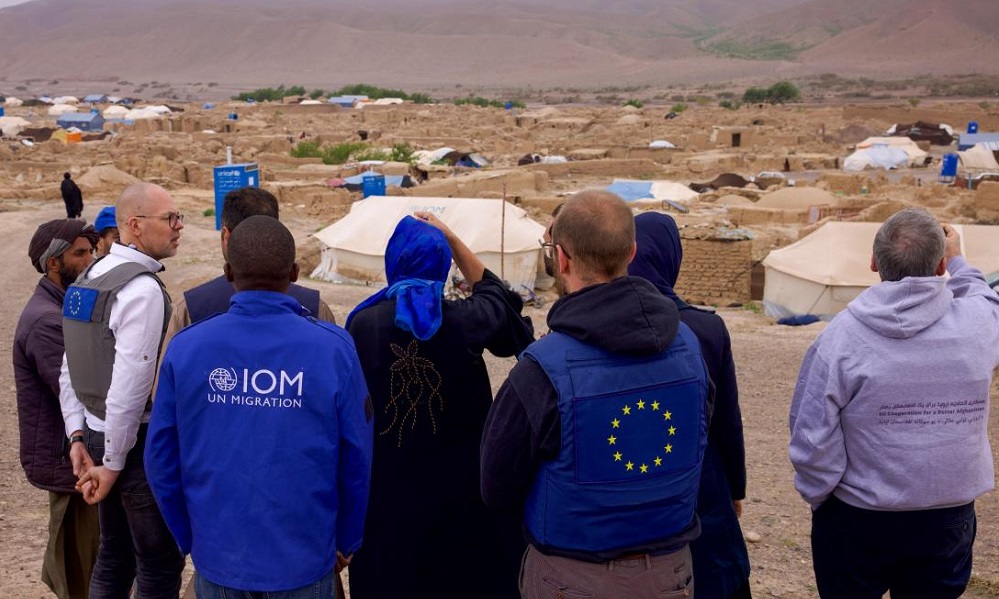
The European Union signed an agreement worth 17 million euros with the International Organization for Migration (IOM) to improve access to basic services, increased economic opportunities and protection for Afghans on the move and their host communities in Afghanistan.
The needs of women and girls are a particular focus of the programme, EU said in a statement released on Thursday.
The statement noted that from January 2023 until April 2024, over 1.5 million Afghans returned from Pakistan and Iran.
“I am deeply moved by the hardship returnees face when being deported to Afghanistan. In a country suffering from poverty and climate change, and in a city that just saw devastating earthquakes, this truly is a crisis within a crisis.”, said Peteris Ustubs, Director for the Middle East, Asia and Pacific of the European Commission’s Department for International Partnerships during the signing ceremony at the IOM transit centre in Herat.
Raffaella Iodice, EU Chargée d’Affaires a.i. to Afghanistan, added “The solidarity of the Afghan people towards their brothers and sisters is an inspiration. We must assure that communities hosting and helping new arrivals are supported. The partnership with IOM ensures access to essential services and provides protection for Afghan returnees and their host communities. As women and girls can be particularly affected, we make sure that all members of society can benefit”.
“IOM’s continued partnership with the EU has been critical in enabling our teams to reach hundreds of thousands of Afghan returnees and other vulnerable communities in the country”, said IOM Afghanistan Chief of Mission, Maria Moita. “Thanks to this renewed commitment, we will be able to focus on addressing the immense challenges in the areas of return and contribute to reintegration, social cohesion, and longer-term solutions for those communities.”
This additional contribution is part of a 5-year programme that is being implemented across Afghanistan and in four countries in the region. It builds on the EU’s previous support to IOM to improve the wellbeing of Afghans forced to return to the country, EU said.
-

 Latest News4 days ago
Latest News4 days agoRashid Khan named AWCC’s brand ambassador
-

 Regional5 days ago
Regional5 days agoIranian president lands in Pakistan for three-day visit to mend ties
-

 Sport5 days ago
Sport5 days agoKolkata beat Bengaluru by one run in IPL as Kohli fumes at dismissal
-

 Sport5 days ago
Sport5 days agoACL: Aino Mina 3-0 Istiqlal Kabul; Attack Energy 3-0 Khadim
-

 Climate Change5 days ago
Climate Change5 days agoRescuers race to reach those trapped by floods in China’s Guangdong
-

 World4 days ago
World4 days agoMalaysian navy helicopters collide in mid-air, 10 killed
-

 Sport4 days ago
Sport4 days agoJaiswal ton powers Rajasthan to big IPL win
-

 Sport4 days ago
Sport4 days agoMawj Sahil player scores stunning halfway line goal in 1-0 win over Jawanan Wahedi


